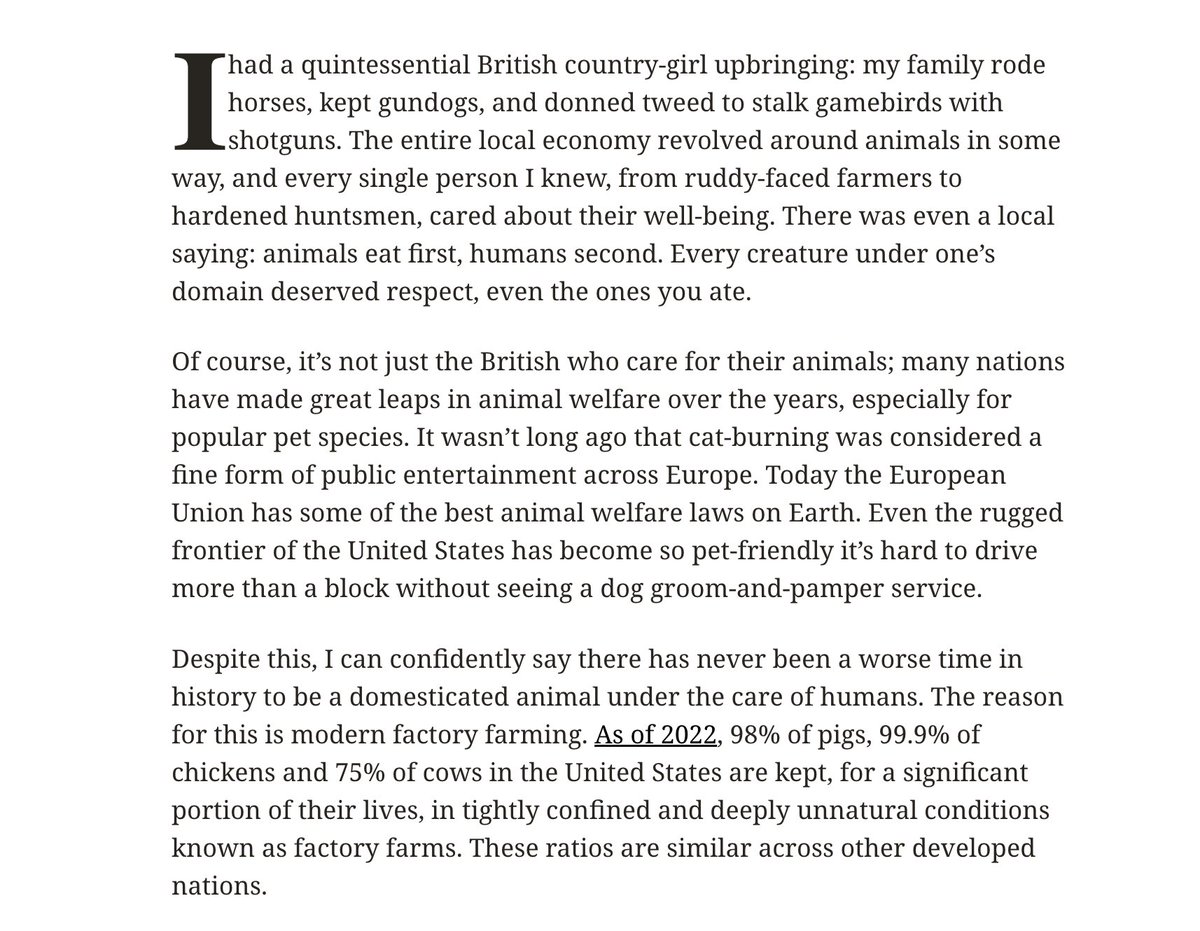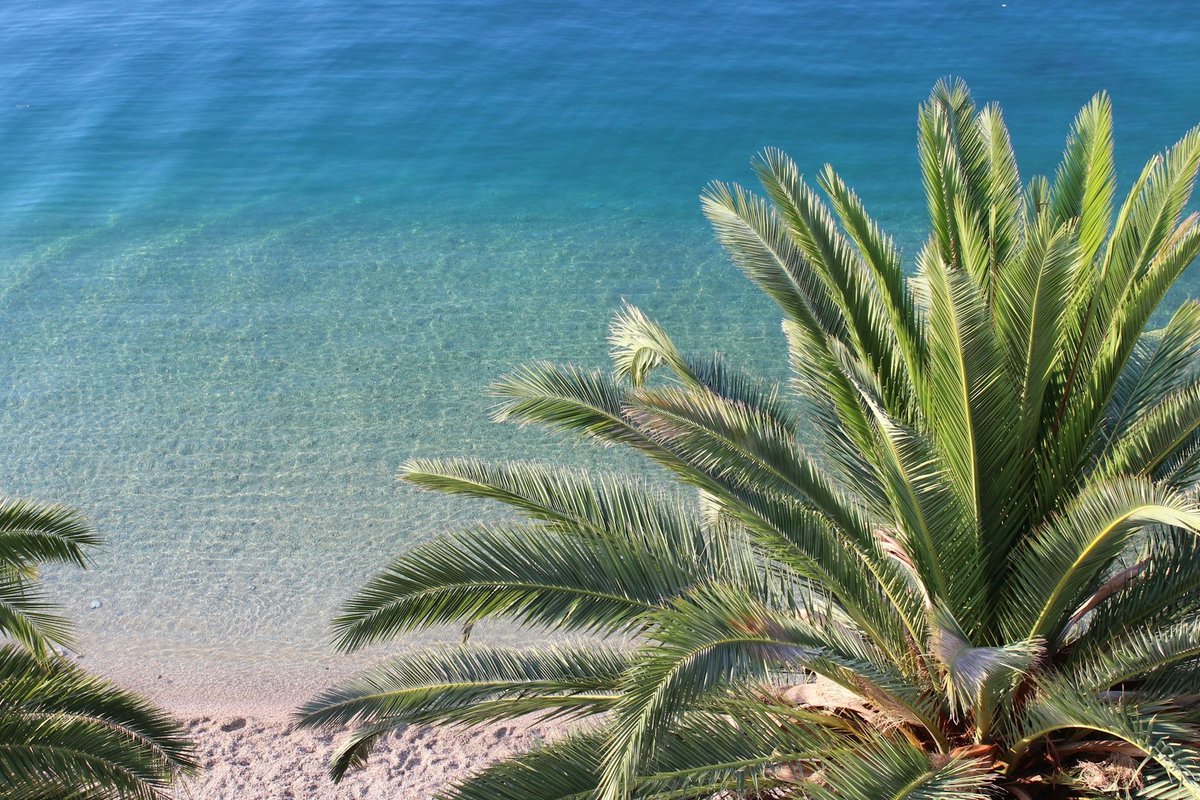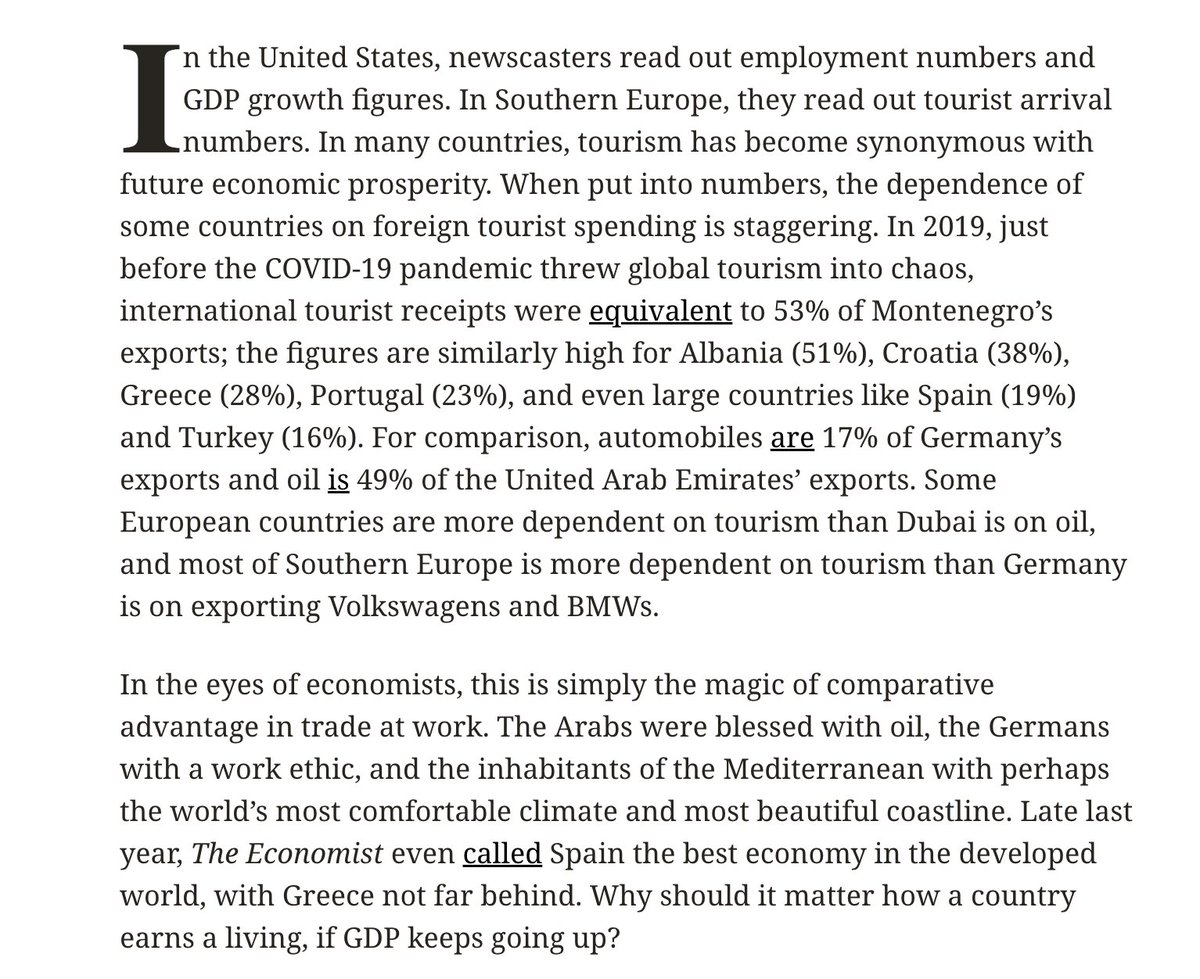
Exploring the future of governance and society since 2018. Become a member below to receive our latest print edition and invitations to our events ⬇️
How to get URL link on X (Twitter) App


 The unity and harmony needed to establish new foundations for dysfunctional societies are lacking around the world today.
The unity and harmony needed to establish new foundations for dysfunctional societies are lacking around the world today.

 Featuring essays from @SamoBurja @RazibKhan @MungoManic @BenLandauTaylor @Hieraaetus and more, our fall 2025 print edition is our look at the latest new theory and evidence, genetic and archaeological, of our prehistory.
Featuring essays from @SamoBurja @RazibKhan @MungoManic @BenLandauTaylor @Hieraaetus and more, our fall 2025 print edition is our look at the latest new theory and evidence, genetic and archaeological, of our prehistory.

 Despite many great leaps in animal welfare over the years, there is one huge exception in the developed world: factory farming.
Despite many great leaps in animal welfare over the years, there is one huge exception in the developed world: factory farming.


 Australia is a unique piece in the puzzle of human origins, colonized by modern humans before Europe, but remaining almost entirely isolated, preserving many aspects of human culture and genetics that vanished elsewhere.
Australia is a unique piece in the puzzle of human origins, colonized by modern humans before Europe, but remaining almost entirely isolated, preserving many aspects of human culture and genetics that vanished elsewhere.

 Conventional wisdom once held the ability to construct sea-going vessels did not develop until late. But it has become an indisputable fact that ancient artifacts from humans or pre-human hominids are found even on very remote islands.
Conventional wisdom once held the ability to construct sea-going vessels did not develop until late. But it has become an indisputable fact that ancient artifacts from humans or pre-human hominids are found even on very remote islands.


 Some European countries are now more dependent on tourism than Dubai is on oil, and most of Southern Europe is more tourism-dependent than Germany is on exporting cars.
Some European countries are now more dependent on tourism than Dubai is on oil, and most of Southern Europe is more tourism-dependent than Germany is on exporting cars.



 One of the hottest new software startups uses flamboyant viral marketing to promise to help users "cheat" on everything.
One of the hottest new software startups uses flamboyant viral marketing to promise to help users "cheat" on everything.

 South Korea is per-capita the world's most industrially productive and dynamic society. On energy, cars, semiconductors, robots, nobody else is comparable.
South Korea is per-capita the world's most industrially productive and dynamic society. On energy, cars, semiconductors, robots, nobody else is comparable.


 The dream of 20th century statesmen was to abolish war and achieve world peace.
The dream of 20th century statesmen was to abolish war and achieve world peace.


 Lawrence argues the defining features of contemporary South Africa are the intertwining of government with organized crime—through both corruption and violence—and the creation of a political economy where extraction, not production, is paramount.
Lawrence argues the defining features of contemporary South Africa are the intertwining of government with organized crime—through both corruption and violence—and the creation of a political economy where extraction, not production, is paramount.


 Bitcoin has gone from a fringe passion project to a widely-held asset whose proponents argue it should be held by governments and central banks; and they are listening.
Bitcoin has gone from a fringe passion project to a widely-held asset whose proponents argue it should be held by governments and central banks; and they are listening.


 Starship was designed around the difficult constraints of cost-efficiently transporting cargo to another world, because of this it goes far beyond what would be necessary to just dominate the global satellite market.
Starship was designed around the difficult constraints of cost-efficiently transporting cargo to another world, because of this it goes far beyond what would be necessary to just dominate the global satellite market.








 No serious discussion about universities can begin without acknowledging their original and unique mission which they have retained for a thousand years to the present day:
No serious discussion about universities can begin without acknowledging their original and unique mission which they have retained for a thousand years to the present day:



 Europe has set itself up to lose the two most basic ingredients for industrial competitiveness and sustainability: cheap energy and cheap labor.
Europe has set itself up to lose the two most basic ingredients for industrial competitiveness and sustainability: cheap energy and cheap labor.


 Obviously there is one big exception: China's ruling regime is indeed a communist one-party state. But the CCP is just one layer at the top of Chinese society. China is no more its government than America is its.
Obviously there is one big exception: China's ruling regime is indeed a communist one-party state. But the CCP is just one layer at the top of Chinese society. China is no more its government than America is its.

 One of the tricks society plays on us is that it front-loads all the education we get at the beginning of our lives and convinces us we don't need, or even want, any more of it later.
One of the tricks society plays on us is that it front-loads all the education we get at the beginning of our lives and convinces us we don't need, or even want, any more of it later.
https://twitter.com/naval/status/1812649906588598455


 What America does have in common with Latin America is a national mythos originating in the 18th century Enlightenment. The political pageantry and aesthetics of all countries in the Americas are basically the same.
What America does have in common with Latin America is a national mythos originating in the 18th century Enlightenment. The political pageantry and aesthetics of all countries in the Americas are basically the same.


https://twitter.com/zebulgar/status/1808622071217598615The territorial boundaries of Greater America have not substantially changed since 1945 or 1991. By far the most significant addition in a century was Eastern Europe, the former satellites of the Soviet Union.
